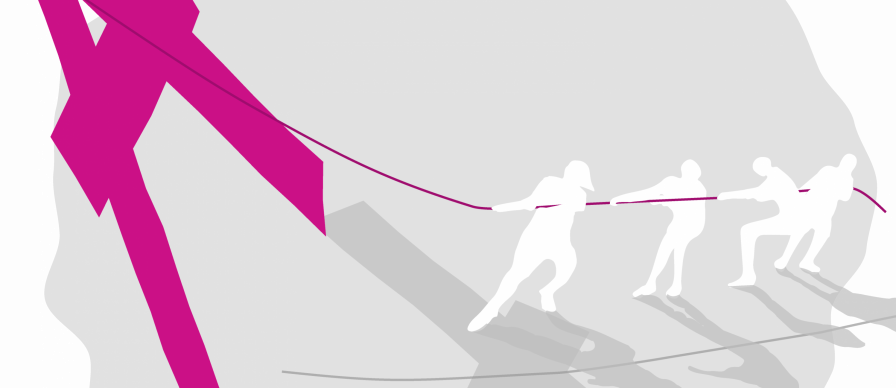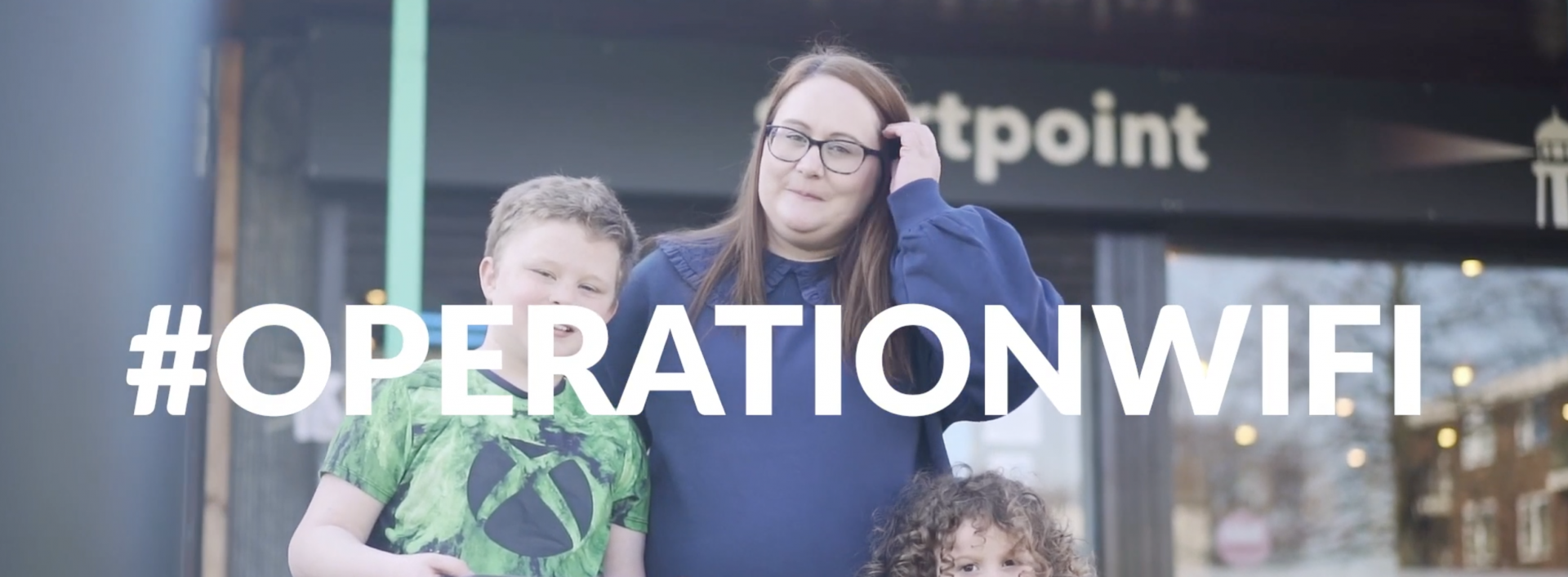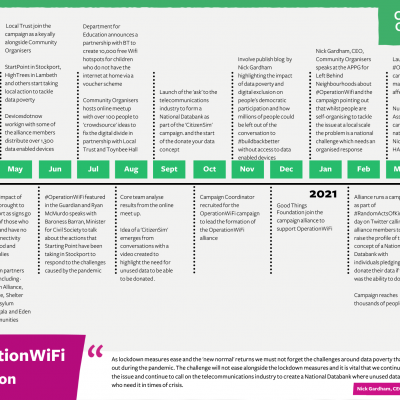On the 19th March, a tweet put out by Community Organisers calling for the largest open free wireless network for low-income communities, using the hash tag #OperationWiFi reached over 12,000 people and even led to prominent politicians such as Danny Kruger MP acknowledging the issue and asking for a solution.
By the 23rd of March, with lockdown announced, this ask had reached over 50,000 people. The debate around Internet connectivity as a luxury, was shifting towards the recognition of it being an essential need and the idea of bridging this digital divide was gaining momentum.
We knew at this time, access to the internet was invaluable, in fact, to stay safe, stay connected and stay informed, it’s as important as any core utility. We also knew that for many people in the Dyke House area of Hartlepool it is beyond reach. They simply cannot afford broadband connections and rely on mobile data services, predominantly from a pay as you go provider. Access in this way is expensive and often piecemeal as the upfront costs for an accessible level of data is way more than what is affordable. £30 worth of data or £30 worth of food; is not a choice that should have to be made.
Due to the early momentum, Community Organisers launched #OperationWiFi as an independent campaign on the 29th March alongside initial partners Keyring, Camarados and the Local Area Coordination network.
The campaign had 3 key asks:
- To ensure those on the lowest incomes can get access to data
- That no person is without a device to access the internet
- No person is left behind due to the lack of skills of how to use their device
The challenges posed by the lack of internet connectivity became starker as lockdown measures took hold and despite concerns of local people being heard and moves from central government such as the issuing of free laptops to school students who needed them, this only scratched the surface of what needed to be done.
This was a national issue and local people couldn’t wait for central Government action. Across our network people began to take localised responses such as High Trees Community Development Trust who launched a Crowdfunder and started distributing laptops to people of all ages who needed them, and Stockport Council (after lobbying by Starting Point) agreed to support the concept of a lending library for both data and devices.
We saw signs go up in windows where people were begging someone to get some help or call a charity on their behalf because they couldn’t go online to find out where food banks are, call the GP or get their medication. What was increasingly obvious was the link between digital exclusion and poverty. And how this was exacerbated over the pandemic for those on the margins or with the very least.
Device but no data
#OperationWiFi and the issue of data poverty was gaining widespread attention and was featured in an article in The Guardian.
In July the Department for Education announced a partnership with BT to create 10,000 free WiFi hotspots for children who did not have the internet at home via a voucher scheme. However, as the lockdown started to ease we began to hear the real stories of loneliness and isolation with many adults still not having access to devices or data.
To respond to this challenge Community Organisers hosted an online conversation with over 100 people and organisations to ‘crowdsource’ ideas to fix the digital divide in partnership with Local Trust and Toynbee Hall.
These conversations led to a reformed ask for the #OperationWiFi campaign. This ask, drawing on learning from other parts of the globe, was to enable the gifting of data to a national databank so users’ unused mobile phone data could be distributed to those who needed it. A campaign coordinator was recruited to lead the formation of the alliance.
A National Databank
The alliance evolved significantly with over 100 national and local civil society organisations joining from across the public, private and voluntary sector and supporting the ask for a National Databank.
As part of the ongoing campaign Members of the alliance pledged as part of the “random acts of kindness” Twitter campaign to donate their data if there was the opportunity to do so. This campaign was picked up by a national telecommunications provider, which opened conversations with the alliance about the potential for a national databank.
As a result O2 Virgin Media launched a National Databank that is now administered by the Good Things Foundation.




